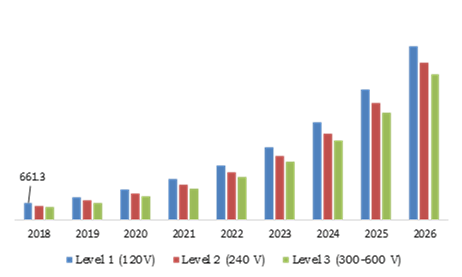
As electric vehicles (EVs) continue to gain popularity, the need for an extensive and efficient charging network becomes increasingly crucial. The expansion of EV infrastructure plays a pivotal role in supporting the mass adoption of electric vehicles and ensuring a seamless and convenient charging experience for EV owners. In this article, we will delve into the significance of charging network expansion, explore the latest developments, and discuss the advantages it brings to the EV ecosystem.
The Importance of Charging Network Expansion
One of the main hurdles that potential EV owners face is the fear of running out of battery power during their journeys. The anxiety surrounding the limited range of electric vehicles discourages many from embracing this eco-friendly alternative to traditional fuel-powered cars. However, with the continuous growth of the charging network, range anxiety can become a thing of the past.
By expanding the charging infrastructure, EV owners gain access to a larger number of charging stations, making long-distance journeys more manageable. This increased convenience and peace of mind has the potential to accelerate the transition to electric vehicles, as range limitations become less of a concern.
The Latest Developments in Charging Network Expansion
The commitment to expanding the EV infrastructure has been observed worldwide. Governments, automakers, and private companies are collaborating towards building a widespread and efficient charging network. With substantial investments and innovative solutions, the expansion is well underway.
1. Government Initiatives
Many governments have recognized the pivotal role of charging network expansion in achieving their sustainability goals. Various countries have announced ambitious plans to install charging stations nationwide, providing support and incentives to both consumers and charging service providers. These initiatives aim to encourage private investments into the EV infrastructure and ensure reliable and accessible charging options for all.
2. Automaker Interventions
Automakers are key players in the expansion of EV infrastructure. Many leading companies are recognizing the importance of providing a seamless charging experience to their customers. Consequently, strategic partnerships and collaborations between automakers and charging operators are becoming increasingly common, ensuring the integration of charging options into vehicle navigation systems and providing comprehensive charging solutions to users.
3. Technological Advancements
The growth of EV infrastructure also heavily relies on technological advancements. The development of high-power chargers, capable of significantly reducing charging times, has been a game-changer. Fast-charging solutions, combined with an expanding network, are enhancing the convenience of electric vehicles and giving users more reasons to make the switch from traditional combustion engines.
The Advantages for the EV Ecosystem
The expansion of the charging network brings a myriad of advantages to the EV ecosystem, positively impacting all its stakeholders.
1. Increased EV Sales
With a comprehensive and reliable charging network in place, potential EV buyers gain the confidence to fully embrace electric vehicles. Consequently, the increased convenience of charging positively influences EV sales, propelling the growth of the market and further incentivizing automakers to invest in EV technology.
2. Enhanced Environmental Impact
The growth of the charging infrastructure contributes significantly to reducing carbon emissions. As more individuals shift to electric vehicles, the demand for fossil fuels decreases, and the environmental benefits of EVs become even more apparent. A widespread charging network enables EVs to operate efficiently while minimizing their ecological footprint.
3. Boost to Employment and Economic Growth
The expansion of EV infrastructure opens up new job opportunities and stimulates economic growth. The installation, maintenance, and operation of charging stations create employment in various sectors, from construction to software development. Furthermore, with increased EV adoption, the demand for EV-related products and services leads to economic expansion and the creation of new business opportunities.
4. Grid Integration and Energy Management
As the charging network expands, smart charging solutions and grid integration technologies are becoming more prevalent. These advancements enable optimized energy management, preventing strain on the power grid during peak charging periods. This coordination between EV charging and grid capabilities ensures a reliable and stable power supply, benefiting both EV owners and the overall electricity infrastructure.
Conclusion
The growth of the charging network is a fundamental component in the widespread adoption of electric vehicles. With government initiatives, automaker interventions, and technological advancements, the EV charging infrastructure is rapidly expanding worldwide. The benefits of a comprehensive charging network extend beyond individual EV owners, positively impacting the environment, employment, and global economic growth. As the charging network continues to grow, both the present and future of electric vehicles shine brighter than ever.

